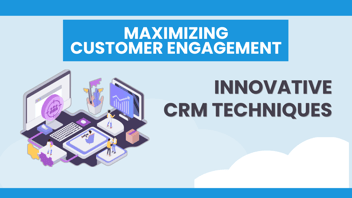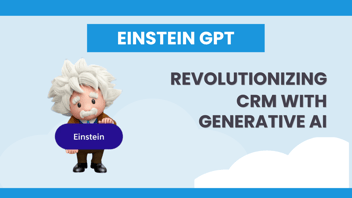In today's business landscape, Customer Relationship Management (CRM) systems have emerged as vital tools. They promise enhanced customer engagement, streamlined processes, and heightened profitability. Yet, despite the potential advantages, an alarming 60% of CRM implementations don't deliver as anticipated. It's not the fault of the software but rather the implementation strategy that's often to blame. Let's dive deeper into this issue and unravel the importance of a strategic approach to CRM.
The Background: The Rise of CRMs
In the era of digital transformation, businesses across sectors have recognized the importance of nurturing customer relationships. The digital age has brought about the customer who is informed, discerning, and has an array of choices at their fingertips. In such an environment, managing customer relationships effectively can set a business apart. This understanding led to the boom of CRM systems aiming to centralize customer data, enhance engagement, and optimize sales and marketing efforts.
The Stumbling Block: Missteps in Implementation
Several factors contribute to the failure rate:
1. Undefined Goals:
Before the implementation of any system, businesses must know why they're doing it. A CRM without a purpose result in misguided efforts.
2. User Resistance:
Change can be challenging. If employees don't see the value or find the system cumbersome, they won't use it.
3. Data Inconsistencies:
A CRM thrives on data. If the data migrated into the system is inconsistent, outdated, or erroneous, the results will be skewed.
4. Inflexibility:
Every business is unique. A one-size-fits-all approach to CRM can hamper its efficiency.
The Strategy Blueprint: Ensuring CRM Success
1. Stakeholder Engagement:
Incorporate feedback from all stakeholders, especially the end-users. Their insights can shape the CRM's functionalities to better suit business needs.
2. Comprehensive Training:
An intensive and ongoing training program ensures that all users are comfortable and proficient with the CRM.
3. Data Management:
Invest in robust data cleansing and migration protocols. Regular audits can also ensure data integrity.
4. Customization:
Tailor the CRM to fit the business. From dashboards to reporting tools, customization can enhance user experience and system efficiency.
5. Continual Evaluation:
The CRM journey doesn't end with implementation. Regular evaluations can ensure that the system evolves with the business.
The Aftermath: Beyond Implementation
A successful CRM system can be transformative. It can offer insights that drive decision-making, automate tasks that save time, and foster relationships that boost the bottom line. But success hinges on strategy.
Conclusion
CETDIGIT is at the forefront of ensuring businesses harness the full potential of their CRM systems. Our deep dive into platforms like Salesforce and HubSpot combined with our strategic approach sets businesses on the path to success. Don't be part of the 60%; partner with us to redefine your CRM journey.
Decoding the 60%: Why CRM Implementation Strategy is Key to Success
.png)
Popular Post
- Nostalgia Marketing’s Power with Millennials & Gen Z
- Sales and Sales Development in 2024: Why AI is a Must-Have for Growth
- SaaS Founder's Bible: The Rise, Fall, and Future of SaaS (2020-2025)- Part 1: Navigating Market Shifts
- What is Salesforce CRM?
- CETDIGIT's Innovative Approach to Salesforce & HubSpot CRM Implementation
Subscribe
Similar Blogs

Maximizing Customer Engagement: Innovative CRM Techniques
IntroductionIn the modern business environment, customer engagement is key to building lasting...
READ MORE
AI Sales Insights: Transforming CRM Dynamics
In the digital age, the integration of Artificial Intelligence (AI) into Customer Relationship...
READ MORE
Einstein GPT: Revolutionizing CRM with Generative AI
If you could manage your customer relationships like a CEO from the future, would you? If you had...
READ MORE
Leave a Comment